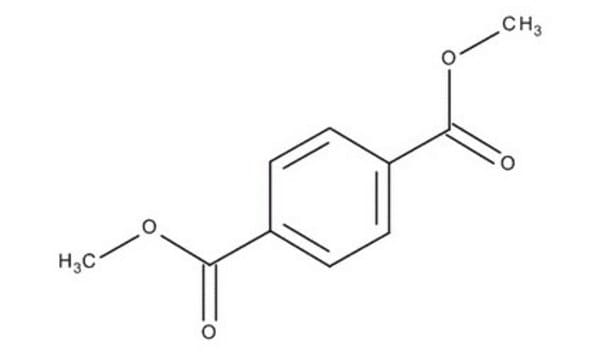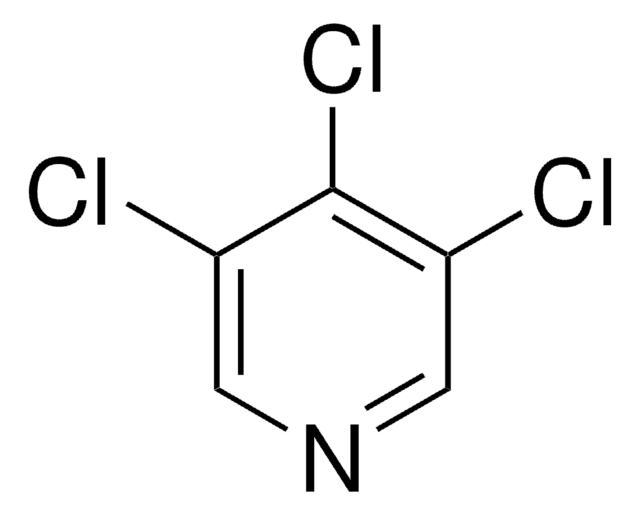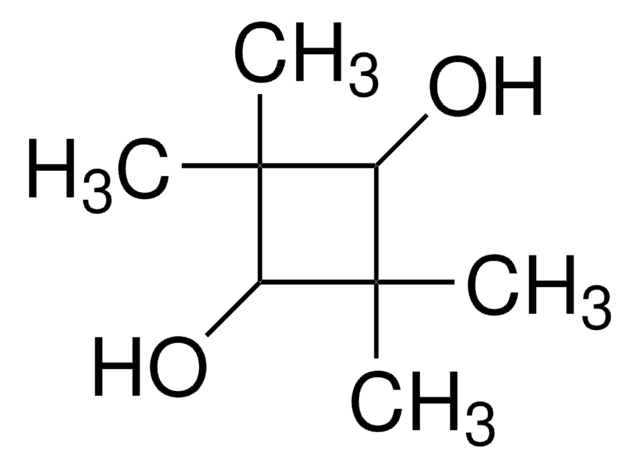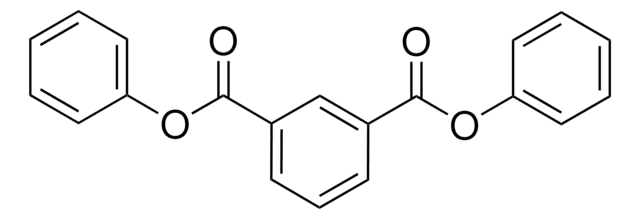185124
Dimethyl terephthalate
ReagentPlus®, ≥99%
Synonyme(s) :
DMT, Dimethyl 1,4-benzenedicarboxylate, Dimethyl p-benzenedicarboxylate, Dimethyl p-phthalate, Methyl 4-(carbomethoxy)benzoate
About This Item
Produits recommandés
Densité de vapeur
1.04 (vs air)
Pression de vapeur
1.15 mmHg ( 93 °C)
Gamme de produits
ReagentPlus®
Pureté
≥99%
Forme
(Powder or Crystals or Chunk(s))
Température d'inflammation spontanée
1058 °F
Pf
139-141 °C (lit.)
Solubilité
water: slightly soluble 0.0493 g/L at 20 °C
Chaîne SMILES
COC(=O)c1ccc(cc1)C(=O)OC
InChI
1S/C10H10O4/c1-13-9(11)7-3-5-8(6-4-7)10(12)14-2/h3-6H,1-2H3
Clé InChI
WOZVHXUHUFLZGK-UHFFFAOYSA-N
Vous recherchez des produits similaires ? Visite Guide de comparaison des produits
Catégories apparentées
Description générale
Application
Informations légales
Code de la classe de stockage
11 - Combustible Solids
Classe de danger pour l'eau (WGK)
WGK 1
Point d'éclair (°F)
309.2 °F - (External MSDS)
Point d'éclair (°C)
154 °C - (External MSDS)
Équipement de protection individuelle
Eyeshields, Gloves, type N95 (US)
Certificats d'analyse (COA)
Recherchez un Certificats d'analyse (COA) en saisissant le numéro de lot du produit. Les numéros de lot figurent sur l'étiquette du produit après les mots "Lot" ou "Batch".
Déjà en possession de ce produit ?
Retrouvez la documentation relative aux produits que vous avez récemment achetés dans la Bibliothèque de documents.
Les clients ont également consulté
Notre équipe de scientifiques dispose d'une expérience dans tous les secteurs de la recherche, notamment en sciences de la vie, science des matériaux, synthèse chimique, chromatographie, analyse et dans de nombreux autres domaines..
Contacter notre Service technique












